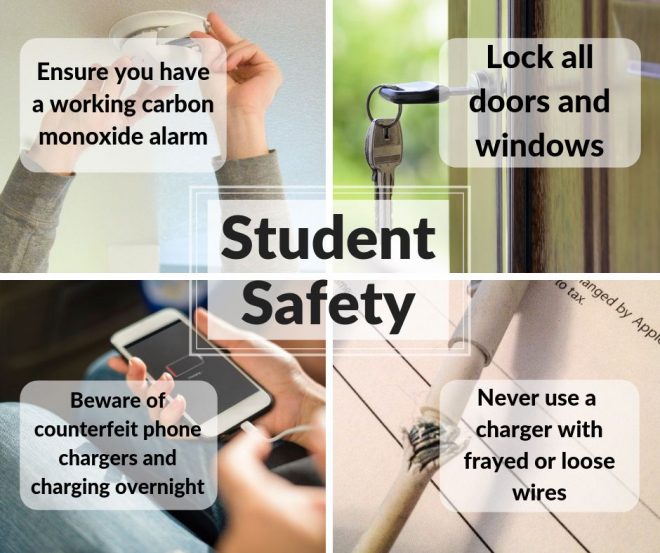 AS college and university students prepare for a new academic year, Derry City and Strabane District Council is encouraging students to keep safe by being aware of potential hazards in their home or student accommodation.
AS college and university students prepare for a new academic year, Derry City and Strabane District Council is encouraging students to keep safe by being aware of potential hazards in their home or student accommodation.
Being mindful of potential hazards in the home and putting in place some simple home safety measures can make the difference between life and death. Some of the main hazards in the home and steps to take to reduce their risk include:
Carbon Monoxide
Carbon Monoxide is a poisonous gas that has no smell or taste. It is produced when fuels such as gas, oil, coal and wood don’t fully burn.
Household appliances that are powered by such fuels include boilers, gas fires, central heating systems, water heaters, cookers and open fires.
Breathing in carbon monoxide can make you unwell and, if you are exposed to high levels, can kill.
Symptoms of carbon monoxide aren’t always obvious, particularly at low-level exposure. The most common symptoms include a tension-type headache; dizziness; nausea and vomiting; tiredness and confusion; stomach pain; and shortness of breath and difficulty breathing.
Ensure your home or student accommodation has a working carbon monoxide alarm in rooms where a fuel burning appliance is located and test the alarm regularly. If you have a gas appliance, make sure to ask your landlord for a gas safety certificate to show that it has been serviced annually.
Fire
Smoke alarms should be installed on every level in student homes and should be tested weekly.
Be aware of the dangers of phone chargers. Counterfeit phone chargers can be deadly as they are often made with poor quality components that fail to meet UK safety regulations.
Always use the charger supplied with the phone. Never leave your phone to charge overnight as it can potentially cause a fire due to overheating.
Burglary
Always remember to lock doors and close windows when leaving the house, even if it is only for a few minutes.
For further information or advice on issues regarding home accident prevention contact the Home Safety Team on 028 71 235 253 or email [email protected]
Tags:




